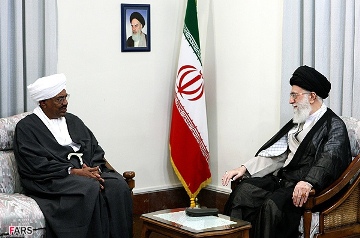Sudan slams Iran for politicizing Hajj rituals
May 14, 2016 (KHARTOUM) – The Sudanese government Saturday criticized what it described as an Iranian attempt to politicize Hajj and impose conditions that could put the safety and security of pilgrims on the line.

The Saudi authorities said on Thursday that the Iranian Hajj affairs rejected to sign minutes of an agreement on the organization of Hajj ritual this year.
A statement issued by the Hajj Ministry in the Saudi Arabia said that the Iranian side attributed the move to its desire consult its reference in Tehran first, requesting issuance of visas to pilgrims from inside Iran.
The Saudi Arabia said it has never banned the Iranians from coming to the Saudi Arabia, saying Iran wanted their pilgrims to make special rituals and congregations that could impede the movement of other pilgrims.
The Iranian cultural minister Ali Janti has said earlier that the circumstances for the Iranians to go to Hajj are not suitable this year, holding Riyadh the responsible for “sabotage” of Hajj this season.
He accused the Saudi government of refusing their proposals on security, transport and visas issuance.
“..Sudan has severed diplomatic ties with Iran after an assault by Iranian protestors on Saudi diplomatic mission last January over the Saudi military intervention in Yemen.
Last year, 169 Iranian died when two large groups of pilgrims converged at a crossroads in Mina, a few kilometres east of Mecca, on their way to perform the “stoning of the devil” ritual at Jamarat.
The incident further increased tensions between the Sunni kingdom and the Shiite theocracy, as Riyadh and Tehran traded accusations over the causes and responsibility of the incident.
Until last year Khartoum government was a close ally to Tehran.
However in January 2016, Sudan severed ties with Iran after an attack on the Saudi embassy in Tehran amid a row over the execution of a Shiite Muslim cleric.
Previously in September 2014; the Sudanese authorities closed down the Iranians cultural centers, because it suspected the former ally of spreading its Shiite thoughts among Sudanese youth.
(ST)
